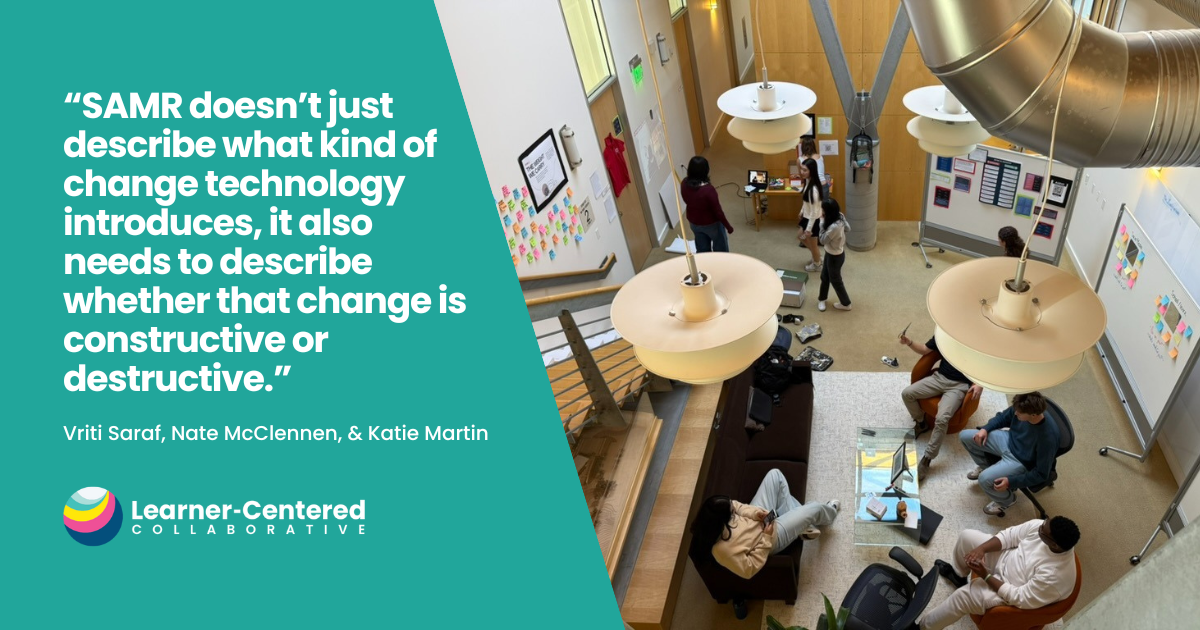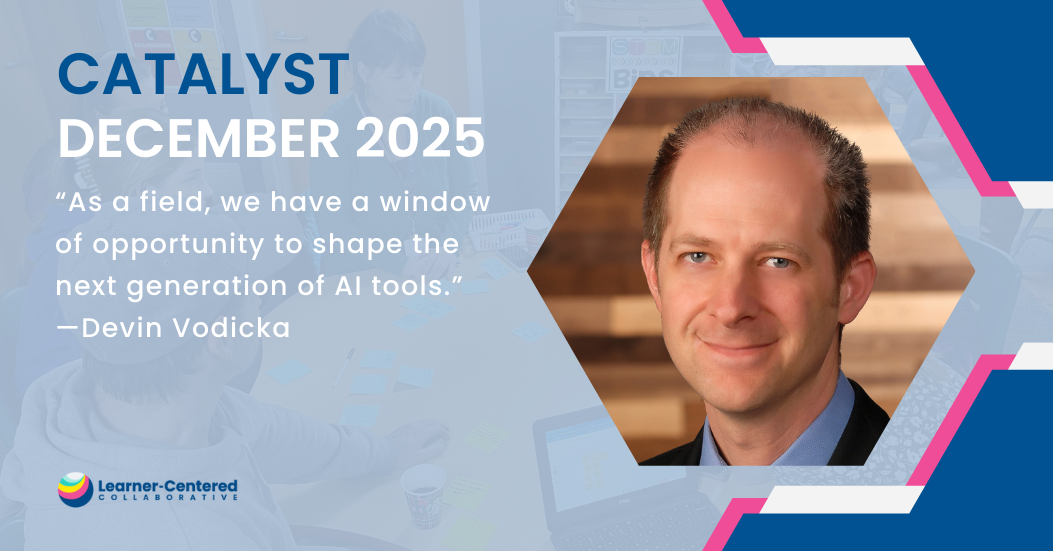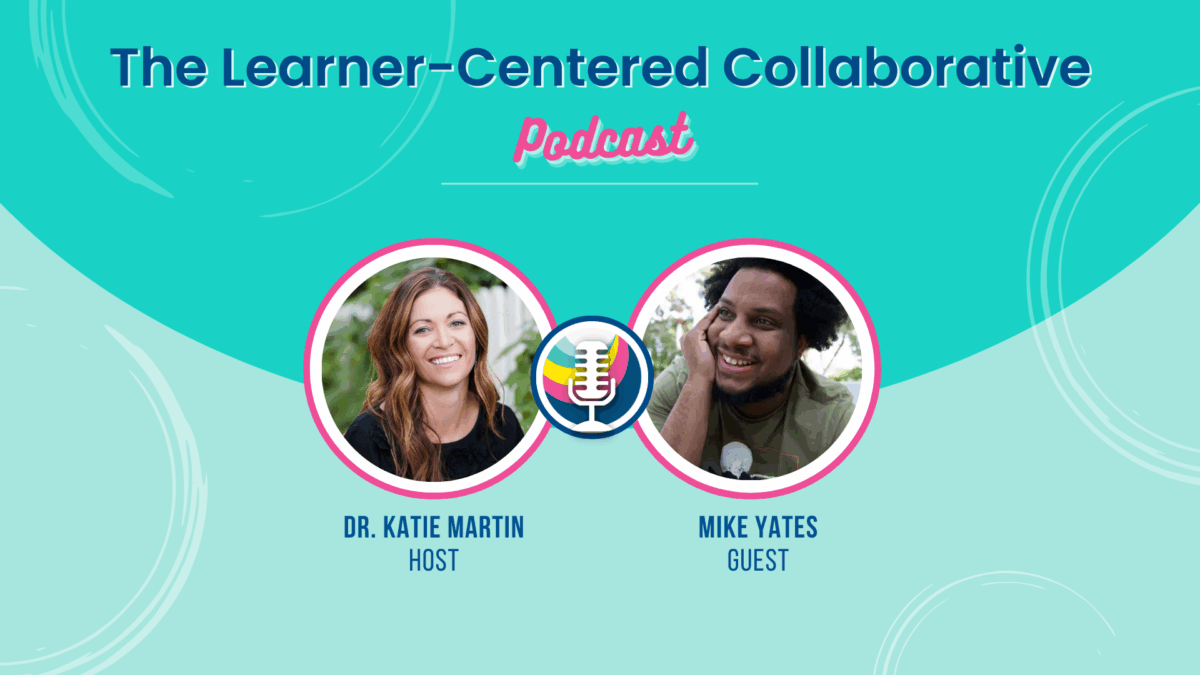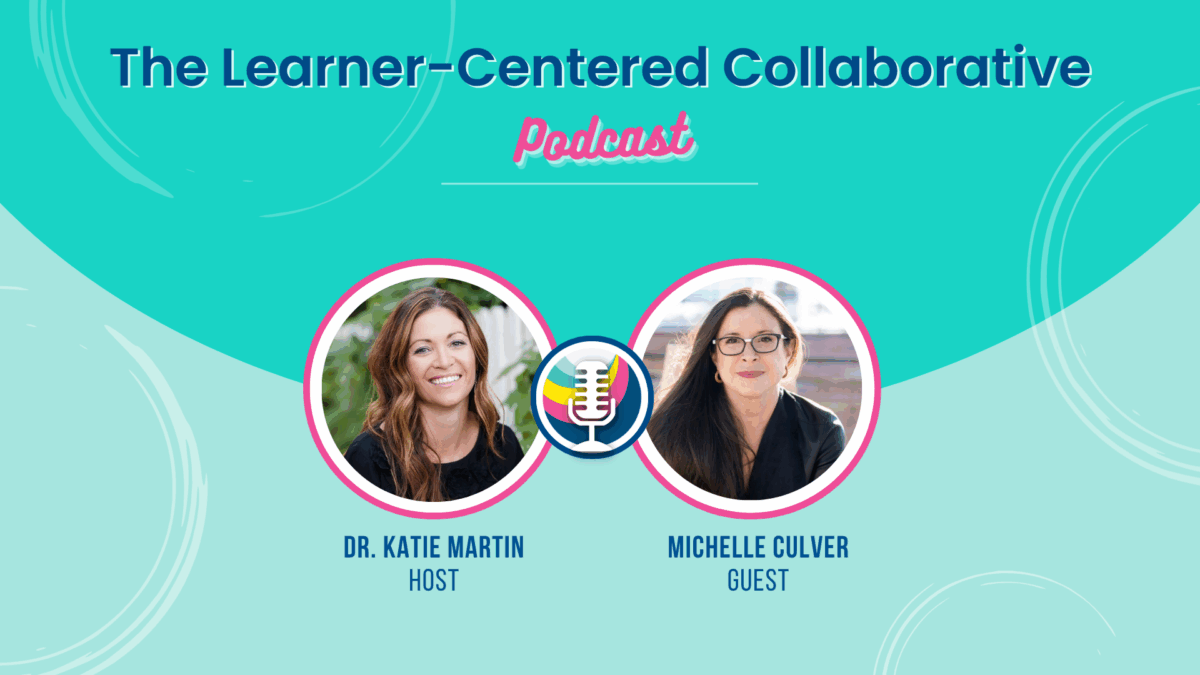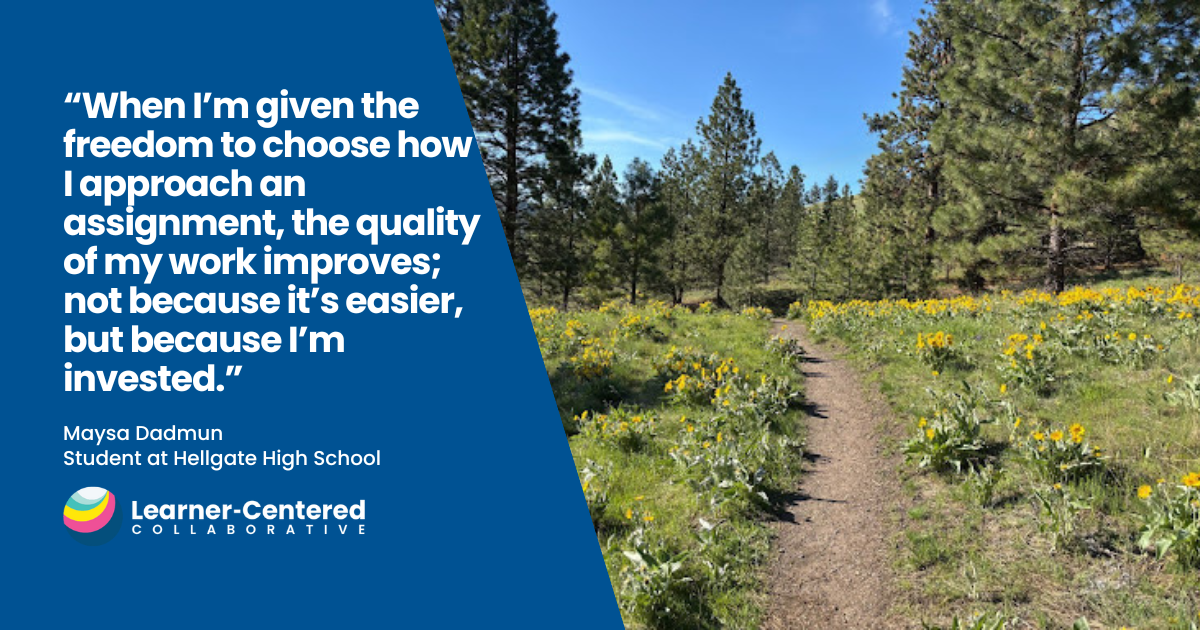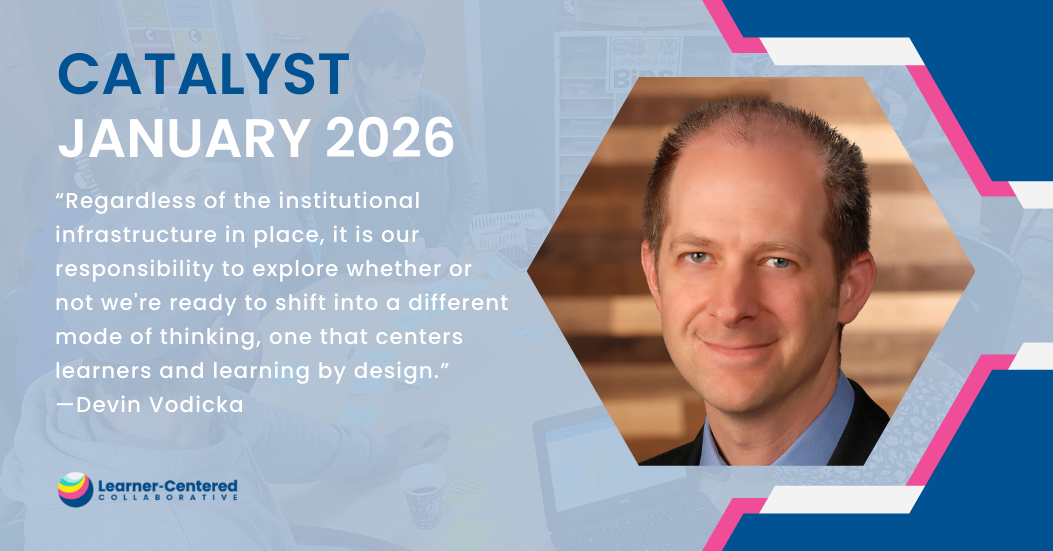We went to ASU+GSV, here’s what we learned
This article was co-authored by Kelsey Payne, VP of Community Engagement, and César Morales, Director of Strategic Partnerships

The Learner-Centered Collaborative team recently attended the ASU + GSV Summit in San Diego, CA. After 2 years of Zoom calls with so many of our colleagues, we were eager to have some face time with our fellow learner-centered partners.
The theme this year at ASU + GSV was “Ed on the Edge: Imagining a new era in which all people have equal access to the future.” As we think about this theme in light of our work at Learner-Centered Collaborative, we think about the future we want for our students and the authentic and meaningful learning experiences we hope for them all to have. As we navigated the many interesting and engaging sessions, there were a few themes that were inspirational and had strong alignment with the vision, mission, and values we embrace as a learner-centered community.
We were grateful to see many of our trusted partners at the conference. Here are some of the themes that surfaced for us as we attended sessions and connected with our community.
Theme 1: The importance of student voice and input
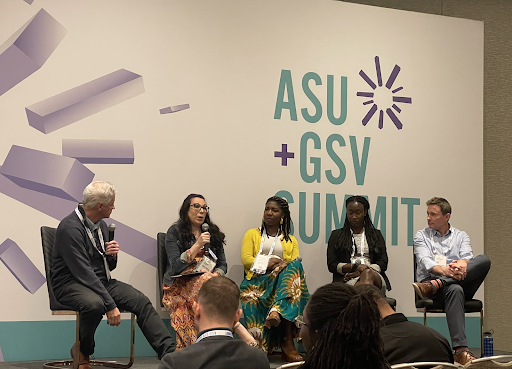 As we know, when we start with learners, we start from a place of possibility—which is why it was so encouraging to see student voices present throughout the conference. Many of the sessions we attended featured student voices through student examples, student surveys, and students speaking on panels.
As we know, when we start with learners, we start from a place of possibility—which is why it was so encouraging to see student voices present throughout the conference. Many of the sessions we attended featured student voices through student examples, student surveys, and students speaking on panels.
Jamila Dugan, co-author of Street Data: A Next-Generation Model for Equity, Pedagogy, and School Transformation, asked the audience, “How often do we get to dream with kids? What would it be like to ask kids what they want for their education? Let’s ask our students how they would do things?” We loved this moment because it allowed us to step back and reflect on the opportunities we create to truly connect with students and ask them about their own vision for their education.
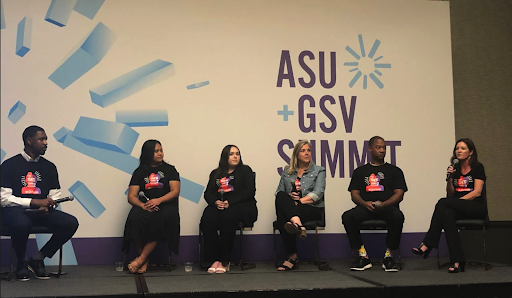 Learner-Centered Collaborative CEO, Katie Martin, spoke on a panel that underscored the importance of centering the student voice when reimagining how school is offered.
Learner-Centered Collaborative CEO, Katie Martin, spoke on a panel that underscored the importance of centering the student voice when reimagining how school is offered.
One student on the panel emphasized how empowered they were made to feel because they felt heard. This student offered the following recommendations for how adults can work to understand the student perspective:
- Participate in the Shadow a Student Challenge
- Create Principal/Superintendent student councils
- Strive to be empathetic and understanding
With student voice foundational to successful change, we continue to orient our work around understanding what students need and want versus assuming we already know.
Theme 2: This work takes all of us
We often reference the education ecosystem that is needed to shift to a learner-centered approach. At the conference, it was evident that so many of us see tremendous opportunity and know that the best days in education are ahead of us and they are attainable.
Andy Calkins from Next Generation Learning Challenges, started off his panel by sharing the many elements that it takes to shift learning. From learning experiences to learning outcomes, this work takes all of us shifting the many aspects of the learner experience. This was a reminder to us of the many different aspects of shifting education and underscored our belief that our shift in education will take many stakeholders all working towards a common goal.
We also heard from award-winning New York Times journalist and author Thomas Friedman who underscored the importance of utilizing “complex adaptive coalitions”, which he described as a group of educators, business leaders, social innovators, and among others, philanthropists that come together to co-design solutions to complex challenges. In similar fashion, Learner-Centered Collaborative works alongside school and district “Guiding Coalitions” to co-author whole learner outcomes and design learning experiences that develop individual learner agency, strengths, interests, and skills.
Theme 3: To shift the learning experience, we must orient to whole-child outcomes
Alcine Mumby, Vice President of Program at Envision Learning Partners, asked, “How do you know if you’re measuring what matters to your community?” This stuck with us because it allowed us to think about the work we do with our partners and how we collaborate to redefine whole-child outcomes.
It was another reminder of the critical importance of collaborating with stakeholders, including our larger community, as we design and develop learner outcomes and skills that matter in the world of work, in our daily lives, and our interactions with the world around us.
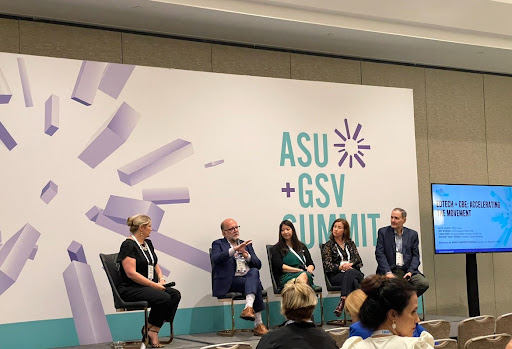 In a moment of aspiration, Charla Long from Competency-Based Education Network shared, “How powerful would it be if our learners came to us and shared: here’s what I know, here’s what I’m passionate about and here’s where I want to go.” For us, that’s the hope, that all students have the opportunity to understand their strengths and their voice in order to advocate to adults about their unique learning journey.
In a moment of aspiration, Charla Long from Competency-Based Education Network shared, “How powerful would it be if our learners came to us and shared: here’s what I know, here’s what I’m passionate about and here’s where I want to go.” For us, that’s the hope, that all students have the opportunity to understand their strengths and their voice in order to advocate to adults about their unique learning journey.
Overall, it felt invigorating and inspiring to be in person, connecting with those in our education ecosystem. As we carry forward what we learned we can’t help but wonder, what’s next? We’re eager to continue the conversation and the work.
Be part of our growing learner-centered ecosystem. Sign up for weekly and monthly newsletters with insights, resources, and examples from the field.
